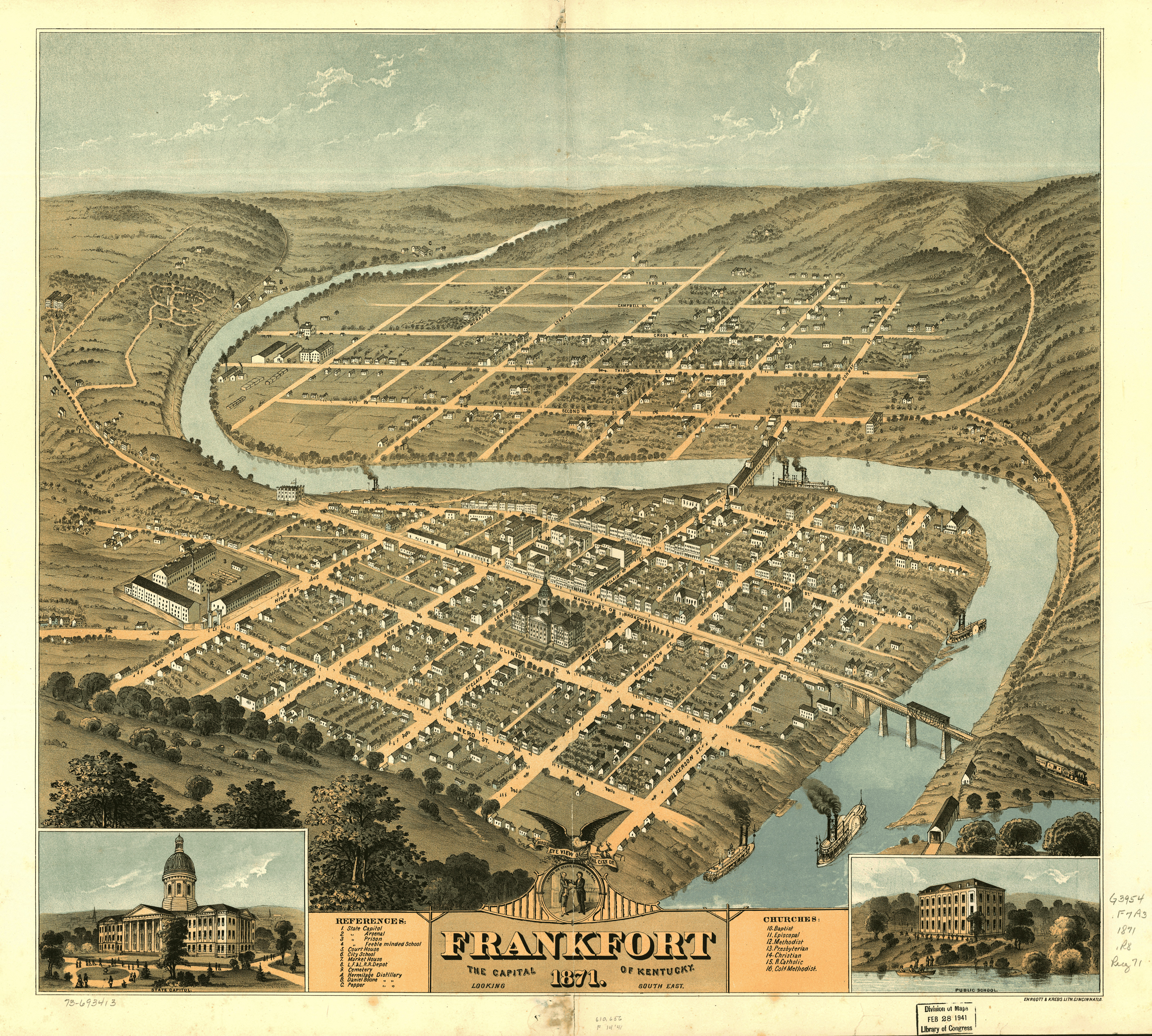|
Charles M. Waterman (judge)
Charles M. Waterman (January 5, 1847 – January 28, 1924) was a justice of the Iowa Supreme Court from January 1, 1898, to June 18, 1902, appointed from Scott County, Iowa. . Born in Frankfort, Kentucky, Waterman was admitted to the Iowa bar in 1871."Judge Waterman Called by Death", ''The Moline Dispatch'' (January 28, 1924), p. 9. After working for a time as a city attorney, Waterman was elected to the Iowa House of Representatives in 1877, and on June 28, 1887, was appointed by Governor William Larrabee (Iowa politician), William Larrabee to a seat on the Iowa Seventh Judicial Circuit. Waterman was reelected to the seat in November of that year, and again in 1890 and 1894."Many Distinguished Citizens Found in History of Bar Here", ''The Davenport Daily Times'' (July 11, 1936), 50th Anniversary Edition, p. 70. In 1898, he was elected to the state supreme court, serving until 1902, when he left to return to private practice. He died in his home, after a lengthy illness. Referen ... [...More Info...] [...Related Items...] OR: [Wikipedia] [Google] [Baidu] |
Judge Charles M
A judge is a person who wiktionary:preside, presides over court proceedings, either alone or as a part of a Judicial panel, panel of judges. A judge hears all the witnesses and any other Evidence (law), evidence presented by the barristers or solicitors of the case, assesses the credibility and arguments of the parties, and then issues a ruling in the Case law, case based on their interpretation of the law and their own personal judgment. A judge is expected to conduct the trial wiktionary:impartial, impartially and, typically, in an in open court, open court. The powers, functions, method of appointment, discipline, and training of judges vary widely across different jurisdictions. In some jurisdictions, the judge's powers may be shared with a jury. In inquisitorial systems of criminal investigation, a judge might also be an examining magistrate. The presiding judge ensures that all court proceedings are lawful and orderly. Powers and functions The ultimate task of a judge is ... [...More Info...] [...Related Items...] OR: [Wikipedia] [Google] [Baidu] |
Iowa Supreme Court
The Iowa Supreme Court is the highest court in the U.S. state of Iowa. The Court is composed of a Chief Justice and six Associate Justices. The Court holds its regular sessions in Des Moines in the Iowa Judicial Branch Building located at 1111 East Court Avenue on the state Capitol grounds, south of the Iowa State Capitol. History In 1846, Iowa became the 29th state to join the United States. Following the constitution of the Federal government, the powers of the government in Iowa were divided into the legislative branch, the executive branch, and the judicial branch. The Iowa General Assembly divided the state into four judicial districts, and Supreme Court justices were to serve six year terms, while district judges were elected for five year terms. The Constitution of Iowa of 1857 increased the number of judicial districts to 11, and allowed the General Assembly to reorganize districts after 1860 and every four years thereafter. Functions The Supreme Court of Iowa is an app ... [...More Info...] [...Related Items...] OR: [Wikipedia] [Google] [Baidu] |
Scott County, Iowa
Scott County is a county located in the U.S. state of Iowa. As of the 2020 census, the population was 174,669, making it the third-most populous county in Iowa. The county seat is Davenport. Scott County is included in the Davenport– Moline- Rock Island, IA– IL Metropolitan Statistical Area. History The first American settlement in the area now known as Scott County was Clark's Ferry or Clark's Landing (now Buffalo) in 1833. Other early towns included Davenport (now the county seat and largest city) and the town of Rockingham (which ceased to exist in 1847). The area was fully surveyed in 1837, and the county was established by the Wisconsin territorial legislature in that same year. Scott County is named for General Winfield Scott, who was the presiding officer at the signing of the peace treaty ending the Black Hawk War. By 1900 the population of the county was 51,500, and by 1950 it was over 100,000. Scott County now comprises part of the Quad City region, which ... [...More Info...] [...Related Items...] OR: [Wikipedia] [Google] [Baidu] |
Frankfort, Kentucky
Frankfort is the capital city of the Commonwealth of Kentucky, United States, and the seat of Franklin County. It is a home rule-class city; the population was 28,602 at the 2020 census. Located along the Kentucky River, Frankfort is the principal city of the Frankfort, Kentucky Micropolitan Statistical Area, which includes all of Franklin and Anderson counties. History Pre-1900 The town of Frankfort likely received its name from an event that took place in the 1780s. Native Americans attacked a group of early European colonists from Bryan Station, who were on their way to make salt at Mann's Lick in Jefferson County. Pioneer Stephen Frank was killed at the Kentucky River and the settlers thereafter called the crossing "Frank's Ford". This name was later elided to Frankfort. In 1786, James Wilkinson purchased a tract of land on the north side of the Kentucky River, which developed as downtown Frankfort. He was an early promoter of Frankfort as the state capital. Wilkinso ... [...More Info...] [...Related Items...] OR: [Wikipedia] [Google] [Baidu] |
William Larrabee (Iowa Politician)
William Larrabee (January 20, 1832 – November 16, 1912) was an American Republican politician from Iowa. He served as the 13th Governor of Iowa from 1886 until 1890. Early life Larrabee was born in Ledyard, Connecticut, into a family of French Huguenot extraction. His father, Adam Larrabee (1787–1869), was a West Point graduate and an accomplished soldier, who served with distinction in the War of 1812. His mother was Hannah (née Lester). Larrabee was the seventh of nine children, and grew up on his father's Connecticut farm. He was educated in local schools until the age of 19. At around age 15 Larrabee lost the eyesight in his right eye after a gun he was holding accidentally discharged. As a result, he was unfit for many careers available to young men of his class in New England. Larrabee chose to become a teacher. In 1853, at age 21, he moved to Iowa following the death of his older brother John who lived in Iowa and had died and an older sister who lived there as well ... [...More Info...] [...Related Items...] OR: [Wikipedia] [Google] [Baidu] |
La Vega G
LA most frequently refers to Los Angeles, the second largest city in the United States. La, LA, or L.A. may also refer to: Arts and entertainment Music * La (musical note), or A, the sixth note * "L.A.", a song by Elliott Smith on ''Figure 8'' (album) * ''L.A.'' (EP), by Teddy Thompson * '' L.A. (Light Album)'', a Beach Boys album * "L.A." (Neil Young song), 1973 * The La's, an English rock band * L.A. Reid, a prominent music producer * Yung L.A., a rapper * Lady A, an American country music trio * "L.A." (Amy Macdonald song), 2007 * "La", a song by Australian-Israeli singer-songwriter Old Man River Other media * l(a, a poem by E. E. Cummings * La (Tarzan), fictional queen of the lost city of Opar (Tarzan) * '' Lá'', later known as Lá Nua, an Irish language newspaper * La7, an Italian television channel * LucasArts, an American video game developer and publisher * Liber Annuus, academic journal Business, organizations, and government agencies * L.A. Scree ... [...More Info...] [...Related Items...] OR: [Wikipedia] [Google] [Baidu] |
Charles A
Charles is a masculine given name predominantly found in English and French speaking countries. It is from the French form ''Charles'' of the Proto-Germanic name (in runic alphabet) or ''*karilaz'' (in Latin alphabet), whose meaning was "free man". The Old English descendant of this word was '' Ċearl'' or ''Ċeorl'', as the name of King Cearl of Mercia, that disappeared after the Norman conquest of England. The name was notably borne by Charlemagne (Charles the Great), and was at the time Latinized as ''Karolus'' (as in ''Vita Karoli Magni''), later also as '' Carolus''. Some Germanic languages, for example Dutch and German, have retained the word in two separate senses. In the particular case of Dutch, ''Karel'' refers to the given name, whereas the noun ''kerel'' means "a bloke, fellow, man". Etymology The name's etymology is a Common Germanic noun ''*karilaz'' meaning "free man", which survives in English as churl (< Old English ''ċeorl''), which developed its depr ... [...More Info...] [...Related Items...] OR: [Wikipedia] [Google] [Baidu] |
Justices Of The Iowa Supreme Court
A judge is a person who presides over court proceedings, either alone or as a part of a panel of judges. A judge hears all the witnesses and any other evidence presented by the barristers or solicitors of the case, assesses the credibility and arguments of the parties, and then issues a ruling in the case based on their interpretation of the law and their own personal judgment. A judge is expected to conduct the trial impartially and, typically, in an open court. The powers, functions, method of appointment, discipline, and training of judges vary widely across different jurisdictions. In some jurisdictions, the judge's powers may be shared with a jury. In inquisitorial systems of criminal investigation, a judge might also be an examining magistrate. The presiding judge ensures that all court proceedings are lawful and orderly. Powers and functions The ultimate task of a judge is to settle a legal dispute in a final and publicly lawful manner in agreement with substantial ... [...More Info...] [...Related Items...] OR: [Wikipedia] [Google] [Baidu] |
1847 Births
Events January–March * January 4 – Samuel Colt sells his first revolver pistol to the U.S. government. * January 13 – The Treaty of Cahuenga ends fighting in the Mexican–American War in California. * January 16 – John C. Frémont is appointed Governor of the new California Territory. * January 17 – St. Anthony Hall fraternity is founded at Columbia University, New York City. * January 30 – Yerba Buena, California, is renamed San Francisco. * February 5 – A rescue effort, called the First Relief, leaves Johnson's Ranch to save the ill-fated Donner Party (California-bound emigrants who became snowbound in the Sierra Nevada earlier this winter; some have resorted to survival by cannibalism). * February 22 – Mexican–American War: Battle of Buena Vista – 5,000 American troops under General Zachary Taylor use their superiority in artillery to drive off 15,000 Mexican troops under Antonio López de Santa Anna, defeating the Mexicans the next da ... [...More Info...] [...Related Items...] OR: [Wikipedia] [Google] [Baidu] |





